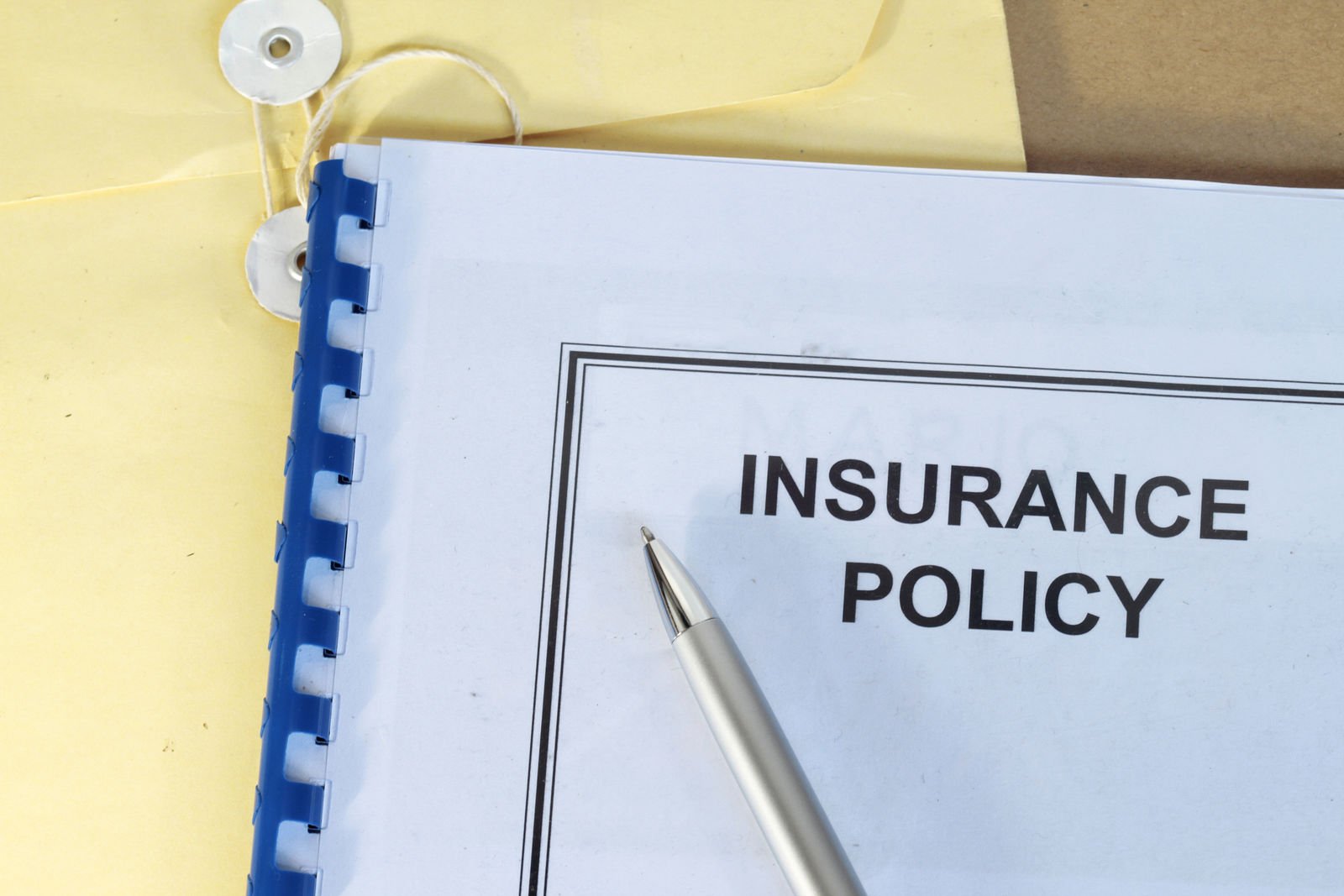Can I change my car insurance company mid-policy?
Policyholders can switch car insurance companies mid-policy. Read on to learn when you should change your car insurance company and when you shouldn’t.
Secured with SHA-256 Encryption





Table of Contents
Table of Contents


Licensed Insurance Agent & Agency Owner
Tracey L. Wells is a licensed insurance agent and Farmers insurance agency owner with 23 years of experience. He is proud to be a local Farmers agent serving Grayson, Georgia and surrounding areas. With experience as both an underwriter and agent, he provides his customers with insight that others agents may not have. His agency offers all lines of insurance including home, life, auto, RV, busi...
Tracey L. Wells


Licensed Insurance Agent
Brad Larson has been in the insurance industry for over 16 years. He specializes in helping clients navigate the claims process, with a particular emphasis on coverage analysis. He received his bachelor’s degree from the University of Utah in Political Science. He also holds an Associate in Claims (AIC) and Associate in General Insurance (AINS) designations, as well as a Utah Property and Casual...
Brad Larson
Updated April 2024
- Drivers can switch car insurance at any time, but some companies charge a cancellation fee to terminate policies before the renewal date
- Policyholders should shop around and consider switching if they are recently married, divorced, or adding a teen driver to their policy
- You will most likely have to switch auto insurance when moving out of state if your current insurance company isn’t available
Looking for more affordable car insurance? Then it might be time to switch companies. There are many factors that affect car insurance rates, and you can find the best rates for your driving history when you shop around with multiple companies.
Switching insurance companies is a good idea if you’ve recently married, divorced, or bought a new car. You might also have to switch car insurance when moving to another state if your current insurer isn’t available or you find better rates elsewhere.
Keep reading to find out when you should change policies. We explain how to switch car insurance companies after an accident, with an open claim, and when you just want to find cheaper rates.
How to Switch Car Insurance Companies Mid-Policy
Can you switch car insurance companies mid-policy? Yes. As the policyholder, you have the right to switch auto insurance at any time. Some companies may charge a small fee for ending coverage before the renewal period, but you’ll receive a refund if you pay your annual rates up front.
Interested in changing car insurance companies? Follow the five steps below to learn how to switch your insurance to another company and save money.
Determine Coverage and Compare Car Insurance Quotes
The first step in switching car insurance is determining how much coverage you need and researching where to get the best price. State laws will require a minimum level of liability car insurance coverage, but you may want to add collision, comprehensive, or other types of insurance.
Your rates will go up with any additional coverage, so compare car insurance companies to find one with better quotes than your current insurer. Rates will vary based on your driving and claims history, among other factors. Use our comparison tool above to compare local companies based on your age, coverage, driving history, vehicle type, and ZIP code.
Buy a New Policy First
A rule of thumb to remember when switching auto insurance is to buy the new policy before canceling your current coverage. This protects you from a lapse in insurance. You can lose your license and be responsible for hundreds in fees if you’re caught driving without insurance.
When you buy the new policy, the agent will ask you when to start coverage. It’s a great idea to start the policy that same day if you intend to cancel your current coverage immediately. However, if you’re waiting until the renewal date, schedule your new policy to start the day your old coverage ends.
Call Your Current Insurance Company to Cancel
Once you have the new policy in place, you can call your current insurer to cancel. Insurance companies do not allow policyholders to cancel auto insurance online, so you will have to call and speak to an agent. This guide explains how to cancel car insurance with Geico, State Farm, Allstate, and other national insurers. (For more information, read our “How do I terminate my car insurance policy?“).
Read more: How To Cancel State Farm Car Insurance
Just as when you bought insurance, the agent will ask you to pick a date to end coverage. Always terminate car insurance on the same day your new policy starts. This ensures you will not have a lapse in coverage.
Ask About Cancellation Fees and Refunds
You can switch car insurance at any time, but some companies will charge a fee for terminating coverage before the end of the term. State insurance laws determine how cancellation fees are charged.
- Fixed cancellation fee. Some companies will charge a fixed penalty. This fee can range from $30 to $50 and may be based on the balance you have left to pay.
- Short-rate percentage. Some companies calculate cancellation fees by taking a percentage of the unearned premiums, usually around 10%.
Geico and USAA are the only national companies that do not charge a fee, but USAA is only available to military members and their families. Progressive charges a short-rate fee of 10% to switch car insurance. Other companies’ cancellation fees depend on the local insurance laws where you live, so always ask your insurance agent for more information before switching.
Consider the cost of canceling your coverage before you decide to switch, and always ask about refunds on your policy. Most of the time, you are eligible for prorated refunds if you paid for your policy in full instead of monthly. In this case, companies will subtract the cancellation fee from your refund.
Swap In Your New ID Card
Be sure to replace your old insurance card with the new one. Most national companies use mobile apps where you can store your information digitally, so be sure to download the new company’s app.
Your auto insurance ID card contains the personal and policy information you need to file a claim, call roadside assistance, and speak with an agent, so keep this information handy.
Free Insurance Comparison
Compare Quotes From Top Companies and Save
Secured with SHA-256 Encryption
Why switch car insurance companies?
Finding more affordable car insurance is a big reason why drivers switch companies. But even if you’re happy with your current company, many events could lead to policy changes, including:
- Marriage. Important life changes like marriage and divorce can impact your insurance rates, so shop around to see if switching can save you money.
- Moving out of state. Not all companies offer the same coverage in every state, and you will have to switch if your company isn’t available.
- Buying a new car. Auto insurance rates vary by vehicle make and model, so compare quotes for your new car to see if you might want to switch for cheaper rates.
- Adding a teen driver. Teens and young adults pay the most for car insurance, so if you’re adding a new driver to your policy, you may want to switch to a company that doesn’t raise rates as high for teen car insurance.
Switching car insurance companies is also a good idea if you’ve recently made any commute or career changes. For example, working from home might significantly decrease the annual mileage you put on your car, earning you low-mileage discounts and cheaper rates.
More than saving money, switching auto insurance companies is important if you had a negative claims experience or weren’t satisfied with the customer service at your current insurer. Consider how customer satisfaction ratings affect car insurance companies in your area as you shop around for a new provider.
When to Switch Car Insurance Companies
The easiest way to switch insurance is before or on your current policy’s renewal date. Car insurance policies last for either a six-month or 12-month term. Depending on the term of your policy, coverage is renewed either once or twice a year. At this time, you can switch car insurance companies without a penalty.
Can you switch car insurance at any time? The short answer is yes. Policyholders can switch auto insurance companies whenever they want. You will not be penalized for switching car insurance multiple times a year, although you may have to pay a cancellation fee.
Luckily, most insurers do not charge to cancel coverage mid-policy, and you will never be charged a cancellation fee for switching during a renewal period.
Is there any time you should not switch car insurance companies?
You might be tempted to switch car insurance and save on your monthly rates. However, just because you have the option of switching mid-policy doesn’t mean it’s the wisest strategy for your budget.
Scroll through the situations discussed below and consider if changing car insurance companies is right for you.
Do Not Switch Auto Insurance Companies if You Have a Loyalty Discount
Insurance companies reward drivers who remain with them for many years. Some automatically add a discount at your first renewal, but most require you to have a policy for at least three years or more to qualify for a discount.
Car insurance loyalty rewards programs usually save you 10% off your annual rates, so it may not make sense to switch if you can’t find cheaper coverage.
Do Not Switch Auto Insurance Companies if You Qualify for Accident Forgiveness
Most companies automatically offer free accident forgiveness to drivers who are claim-free for a certain amount of time. This insurance perk stops your rates from going up after your first at-fault accident.
Progressive and Nationwide offer free accident forgiveness after six months of coverage, while Liberty Mutual and Geico offer it after five years. State Farm really encourages its policyholders not to switch by offering it after nine years.
However, if you’re interested in switching, you can still buy accident forgiveness as an add-on from Allstate, Travelers, Farmers, and many other insurers. As an add-on, you will see your rates go up, so make sure you’re actually saving money by switching before you decide to change car insurance (read our “How do I change car insurance agents?” for more information).
Do Not Switch Insurance Companies if You Were Recently in an Accident
Without accident forgiveness, your monthly car insurance rates can go up by $130 or more after one accident. However, you will not see that increase until your next renewal period.
For example, if you pay monthly for car insurance, you will continue to pay the more affordable pre-accident rates until the date of your renewal. In this case, it’s best to wait until your renewal period to switch companies and use that time to shop around and compare quotes for auto insurance after an accident.
Read more: Can I cancel my car insurance after an accident?
Do Not Switch Insurance Companies if You Have an Open Claim
Switching car insurance after an accident or if you have an open claim isn’t impossible, but it’s not likely to save you any money. You still have to deal with the insurance company processing the claim while making payments to a new company. The claim will also remain on your record, raising your insurance rates.
If you want to switch companies but have an open claim, wait until the claim is closed and your policy is up for renewal.
Case Studies: Changing Car Insurance Companies Mid-Policy
Case Study 1: Swift Coverage Insurance
Sarah, a 30-year-old professional, had been with Swift Coverage Insurance for two years and was satisfied with their services. However, she recently discovered that a different insurance company offered significantly lower premiums for similar coverage. After conducting thorough research and ensuring the new company met her requirements, Sarah decided to switch insurers mid-policy.
She contacted Swift Coverage Insurance, informed them of her decision, and provided all necessary information to her new insurer. Swift Coverage Insurance facilitated a smooth transition, allowing Sarah to cancel her existing policy and obtain coverage from the new company, ultimately resulting in considerable cost savings.
Case Study 2: SafeDrive Assurance
John, a 25-year-old college student, switched to SafeDrive Assurance six months ago. When buying a new car, he found out another insurer offered better rates for equivalent coverage. Intrigued by potential savings, John explored switching insurance providers mid-policy.
He contacted SafeDrive Assurance and explained his situation, requesting to cancel his policy and switch to the new company. SafeDrive Assurance worked with John to complete the necessary paperwork and swiftly facilitated the change. As a result, John seamlessly transitioned to his new insurance company, enjoying reduced premiums without any significant hassle.
Case Study 3: Reliable Auto Insurers
Mark, a 40-year-old small business owner, had been insured with Reliable Auto Insurers for several years. However, he recently experienced a significant increase in his premium rates, despite having a clean driving record. Frustrated with the sudden spike in costs, Mark began researching alternative insurance companies. He found a reputable provider that offered similar coverage at a significantly lower price.
Eager to reduce his expenses without sacrificing protection, Mark decided to switch insurers mid-policy. He contacted Reliable Auto Insurers, expressed his concerns about the premium increase, and informed them of his intention to change companies. Although initially reluctant, Reliable Auto Insurers eventually cooperated, allowing Mark to cancel his policy and move to the new insurer, helping him save money in the process.
Case Study 4: Trustworthy Coverage Group
Linda, a 45-year-old teacher, had been insured with Trustworthy Coverage Group for more than a decade. However, she recently relocated to a different state due to a job transfer. Upon moving, Linda realized that her current insurer did not operate in her new state of residence. Determined to maintain continuity in her coverage and find a reliable insurance provider in her new location, Linda researched various companies.
She eventually discovered a reputable insurer that met her requirements and had positive customer reviews. Linda reached out to Trustworthy Coverage Group, explaining her situation and the need to switch companies. After a series of discussions, Trustworthy Coverage Group gracefully terminated her policy and assisted her in smoothly transitioning to the new insurer.
What You Need to Know About Switching Car Insurance Companies
You can change car insurance mid-policy, but you may be subject to cancellation fees if you switch before the renewal period. State insurance laws ultimately determine if a company can charge to cancel a policy early. Fees can be anywhere between $30 and $50 or 10% of your annual rates.
You’ll have to switch auto insurance companies if you move to a new state where your current coverage isn’t available. You might also want to switch if you were recently married, divorced, or are adding a teen or new driver to your policy.
The easiest way to change car insurance companies is to shop around and compare multiple quotes from local insurers. Use our free comparison tool below to get an idea of what companies are charging in your area and where you can save money.

Frequently Asked Questions
Can I change my car insurance company mid-policy?
Yes, you can switch car insurance companies mid-policy. However, there may be a small fee for ending coverage before the renewal period.
When should I switch car insurance companies?
You should consider switching car insurance companies if you recently got married, divorced, bought a new car, or if you’re moving to another state where your current insurer isn’t available or better rates can be found.
Can I change my coverage at any time?
Yes, you can change your auto insurance coverage at any time. However, there may be a small fee for canceling coverage mid-policy.
Will I receive a refund if I switch car insurance?
Paying car insurance in full or annually may get you a refund for unused coverage, but monthly payments might not.
Why should I switch car insurance companies?
Switching car insurance companies can save you money, provide better customer service, and allow you to find the best coverage for your needs.
Get a FREE Quote in Minutes
Insurance rates change constantly — we help you stay ahead by making it easy to compare top options and save.






